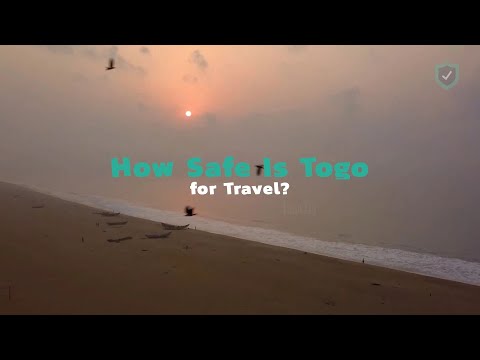
Togo, a narrow strip of land extending north from the Gulf of Guinea in West Africa, is a destination known for its palm-lined beaches, hilltop villages, and rich cultural heritage. Despite its small size, Togo offers a unique travel experience with its diverse landscapes ranging from lakes and palm-fringed beaches to rolling savannas and dense forests. However, as with any travel destination, potential visitors often wonder about safety. Here we explore various aspects of safety in Togo including crime rates, health concerns, transportation safety, and general travel tips.
#### Political Stability
Togo has experienced periods of political instability and unrest. Although the political situation has stabilized considerably since the early 2000s under President Faure Gnassingbé, occasional protests and demonstrations still occur mostly around major cities like Lomé. Travelers are advised to stay informed about local news during their visit and avoid any political gatherings or protests.
#### Crime Rates
Like many countries, Togo faces issues with crime. Petty crimes such as pickpocketing, purse snatching, and minor thefts are relatively common in crowded areas and popular tourist spots. Violent crimes are less common but not unheard of. Travelers are advised to take standard precautions such as avoiding unlit or isolated areas at night and not displaying valuables openly.
In response to crime rates in key areas like Lomé, local police presence has been somewhat strengthened in recent years with special tourist police units deployed in areas frequented by foreigners.
#### Health Safety
Health concerns in Togo include malaria and other tropical diseases prevalent in the region. Visitors should consult with a travel health specialist prior to departure to discuss vaccinations and preventative treatments such as anti-malarial medication. Additionally, it is advisable to drink bottled water or boiled water during your stay as water-borne diseases are common.
The quality of healthcare facilities varies widely in Togo; while there are some adequate facilities in larger cities like Lomé, rural areas typically have limited services. Travel health insurance that includes evacuation coverage is highly recommended.
#### Transportation Safety
Transportation within Togo can be challenging due to poorly maintained roads especially outside major urban centers. During rainy seasons (April to July and October to November), some roads may become impassable. Local driving habits coupled with poorly maintained vehicles contribute to frequent road accidents throughout the country.
When using public transportation like buses or shared taxis (locally known as Zemidjans), travelers should be cautious of overcrowded vehicles which may not meet safety standards. Hiring private taxis or using reputable tour companies for longer trips is generally safer.
#### Practical Tips for Safe Travel
1. **Stay Informed**: Keep up-to-date on local news and advisories from your home country’s embassy while you’re traveling.
2. **Secure Accommodation**: Book reputable hotels or guesthouses that have good security measures.
3. **Be Cautious With Valuables**: Use hotel safes where possible; carry photocopies rather than original documents unless absolutely necessary.
4. **Dress Conservatively**: Respect local cultures especially when visiting rural communities; this can also help avoid drawing unnecessary attention.
5. **Travel Insurance**: Invest in comprehensive travel insurance that covers theft, loss,and medical problems.
6 **Emergency Contacts**: Keep a list of emergency contacts including local emergency services and your home country’s embassy or consulate.
Despite these challenges,Togo remains an intriguing destination for those interested in West African culture,nature,and history.With appropriate precautions,the risks can be significantly mitigated,making it a worthwhile addition to any traveler’s itinerary who seeks off-the-beaten-path adventures paired with cultural richness.
